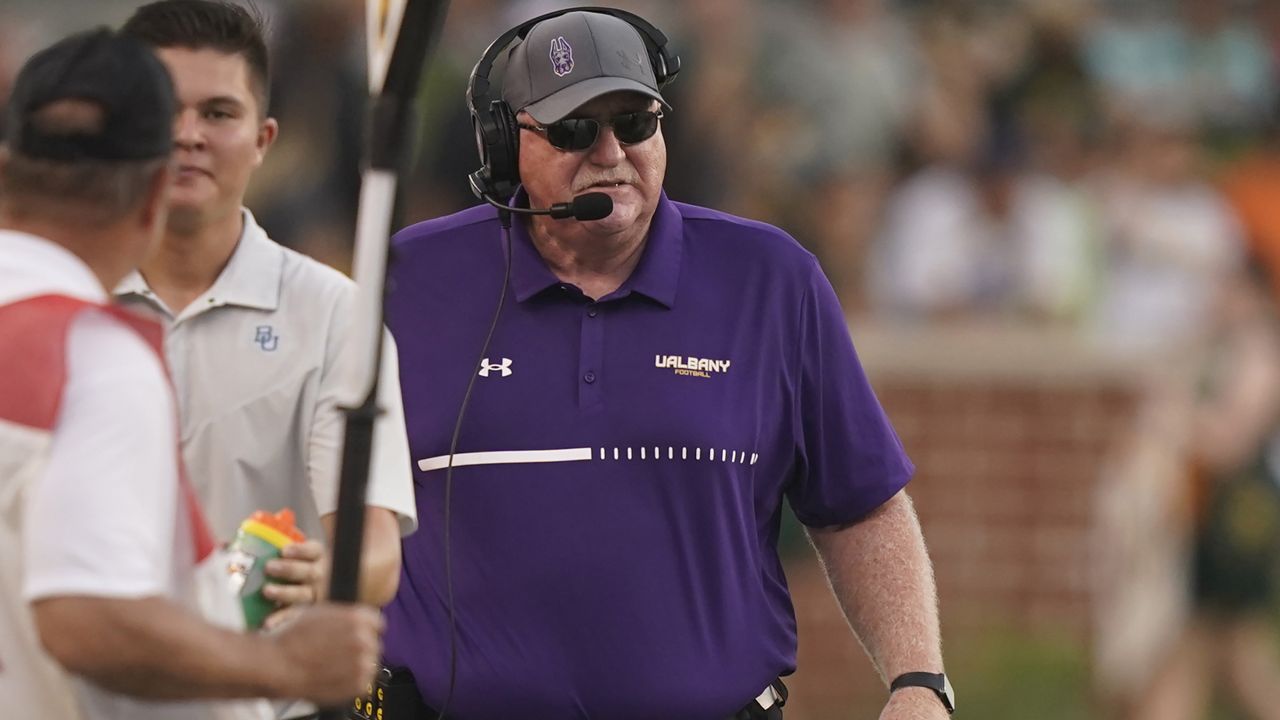Sports
After some progress, Baltimore to host The Aspen Institute’s national youth sports conference: ‘People are trying’

Squash would not seem to be able to compete with sports such as football and basketball to capture the attention of youth in Baltimore.
But there are 70 middle and high school students participating in Baltimore SquashWise’s youth development program, and the organization broke ground on April 25 to begin constructing a new center where the historic Greyhound terminal sat at Howard and Centre streets that will feature six squash courts, three classrooms, a fitness area and meeting areas and almost quadruple the number of young players the group can accommodate.
“The spark and inspiration initially comes from kids who are really curious to try something new and who will put themselves out there,” said Abby Markoe, executive director of Baltimore SquashWise. “We often get kids who consider themselves maybe initially not athletic. Some are, but we’re not getting the kids who are already playing football and basketball really seriously. We’re getting kids who are like, ‘This group came to my gym class or my school, and it sounds interesting. So let me give it a shot.’”
Efforts by Baltimore SquashWise and others are part of a city-wide undertaking to increase youth participation in sports. And their actions have convinced a global organization to hold its annual conference in Baltimore this week.
The Aspen Institute’s Project Play Summit is scheduled for two days. Orioles Hall of Fame shortstop Cal Ripken and former Ravens wide receiver Torrey Smith will headline a series of talks Tuesday from 2:30 to 5 p.m. at Under Armour House at Fayette, while Maryland Gov. Wes Moore, Under Armour founder and CEO Kevin Plank and 20-time Paralympic medalist Tatyana McFadden, an Atholton graduate, will be involved in conversations Wednesday from 8 a.m. to 5 p.m. at Johns Hopkins University. Other speakers include Baltimore Mayor Brandon Scott, Maryland football coach Mike Locksley and former NFL tight end and Fox Sports analyst Greg Olsen.
The organization’s decision to base its conference in Baltimore for the first time is an acknowledgment of the city’s work to encourage more young people to play sports, according to Tom Farrey, executive director of The Aspen Institute’s Sports & Society Program since 2011.
“I think Baltimore is definitely moving in the right direction,” he said. “Baltimore obviously has its challenges, but it also has real assets. You have a mayor who prioritizes and appreciates the value of sport and recreation in building healthy and vibrant communities. You have Under Armour and some really innovative nonprofits — both at the local level and national level — that have dug in, and that hasn’t happened in every city.”
In 2017, the Aspen Institute produced its first youth sports community report that provided findings and recommendations from an eight-member local advisory panel that included Scott, who was at the time a member of the Baltimore City Council.
Since that 40-page report became public seven years ago, city officials, Under Armour executives and grassroots organization directors have tried to address the city’s shortcomings in youth sports participation. Since the number of recreation centers dwindled from 130 in the 1980s to its current total of 39, the city government has renovated four facilities with projects to refurbish or build seven more centers, build 26 new playgrounds and replace all 23 public swimming pools.
Reginald Moore, director of Baltimore City Recreation and Parks, said the department has also hired an athletic director and created an athletic division, organized midnight basketball for the previous two summers with vendors and halftime entertainment, and is operating its own youth football league.
“We were looking at everything from a holistic standpoint, not just sports but how we serve our residents,” Moore said. “This mayor, his focus has been about how we can improve opportunities and create safe havens for our young people. So what we want to do is enhance the opportunities for our kids who are interested in sports.”
After the Aspen Institute’s report, Under Armour committed to utilizing sports to help improve high school students’ athletic experiences and academic grades. Through Project Rampart, the company has partnered with 23 high schools, including several charter schools, to renovate their gymnasiums and outfit more than 30,000 varsity athletes since 2017 with uniforms.
Flynn Burch, Under Armour’s director of global philanthropy who played lacrosse at Loyola Blakefield and Dickinson, said the next step is to partner with more than 80 city middle schools, which rolled out eight sports in 2023-24.
“We are dedicated to going deep and building sustainable and long-term infrastructure for young people,” he said. “We were born on the athletic field, and that’s where we see ourselves being the experts in helping develop what we believe can be a blueprint for other cities to either co-invest or take some of these lessons deep into their cities and provide the same type of opportunities for student-athletes within their communities.”
Companies and organizations that aren’t quite as large as Under Armour have also made inroads. Leveling the Playing Field opened a warehouse in Baltimore in January 2018 and has distributed $4.8 million worth of sporting goods to the Baltimore metro area, and philanthropic groups such as the Harry and Jeanette Weinberg Foundation, the Baltimore Children and Youth Fund and the National Fitness Foundation have distributed more grants to groups trying to fill the gaps in the city.
Markoe, the executive director of Baltimore SquashWise, said the city has helped fund a program called School Squash where the organization brings the coaches and equipment to a physical education class for a day.
“We have been doing a lot of work on the ground for a long time, but we have at some point a limited reach,” she said. “So I think having these larger partners and entities coming to the table and supporting what we do and seeing how a larger organization like Project Play and Under Armour and Baltimore City schools can kind of recognize the work that the grassroots organizations are doing and then bring it to the next level is rewarding.”
Farrey, the executive director of The Aspen Institute’s Sports & Society Program, said the next step is connecting government and civic leaders, company executives and organizational directors to develop a common agenda for subjects affecting many. One of the hopes with next week’s conference is that the people who attend will bond and begin such coordination.
“I’m really proud of all the folks that have dug in and prioritized this,” he said. “I think they have been very authentic actions taken by the mayor, by Under Armour, by an array of nonprofits and grantmakers unlocking new funds to support activities that will get and keep kids playing sports. It’s not perfect. There are still many challenges within the city, and not every effort has produced grand slam results. But people are trying, and I think it’s a foundation to do even greater things moving forward.”









